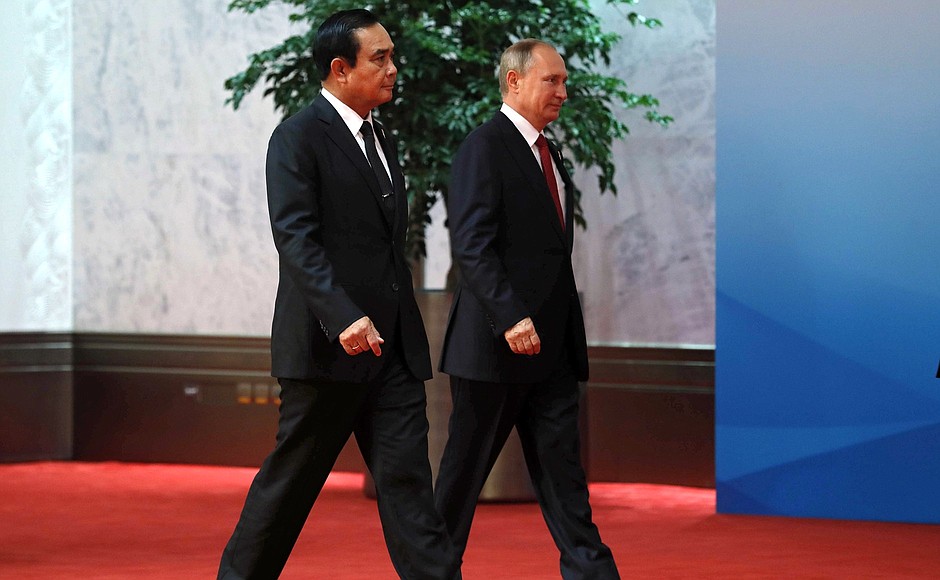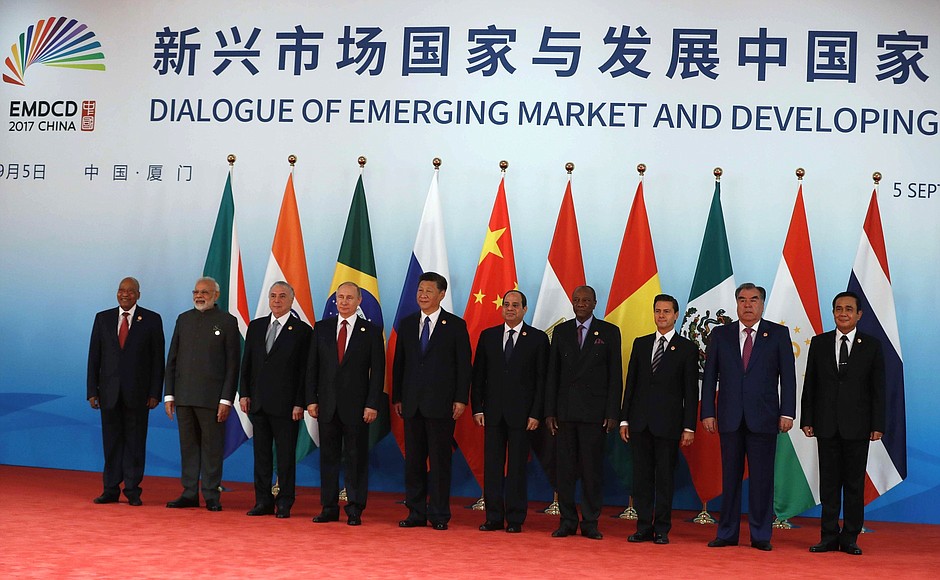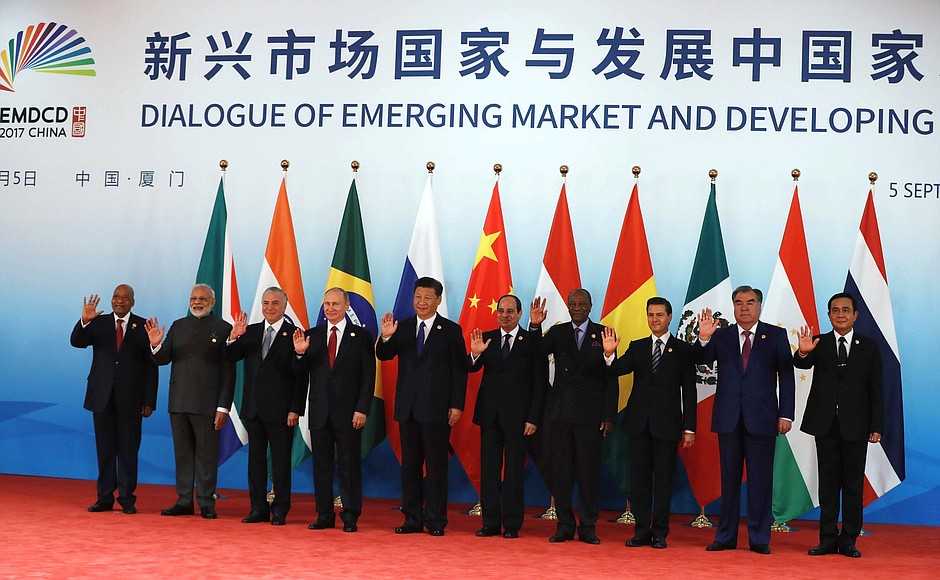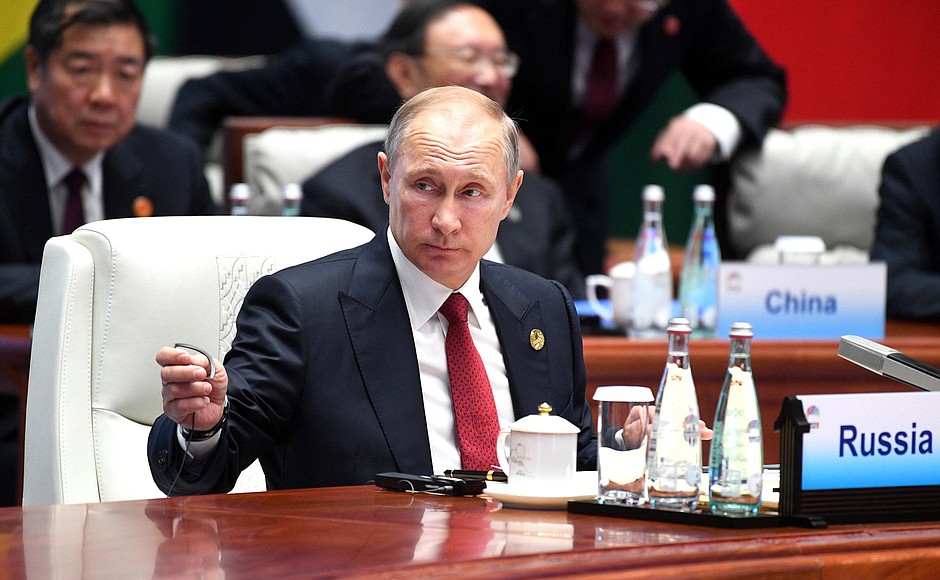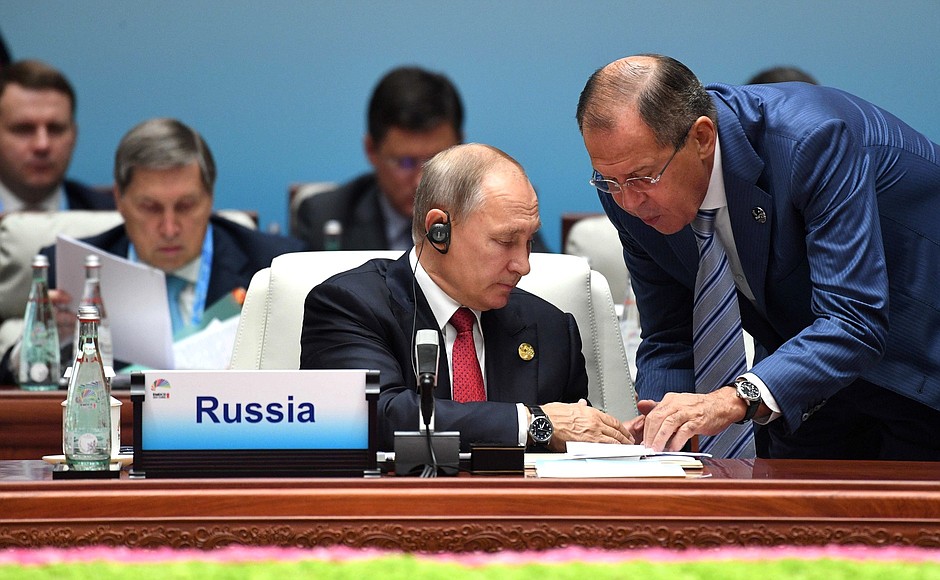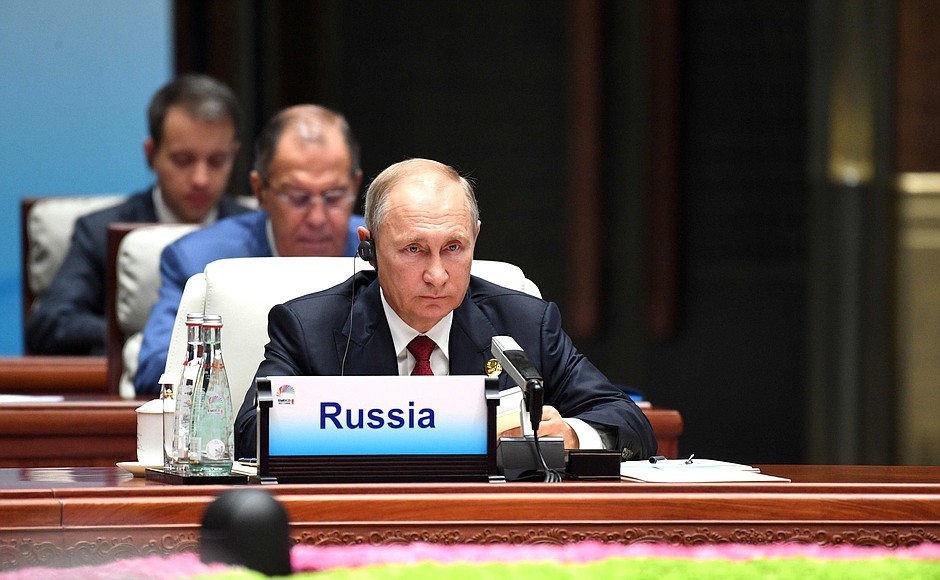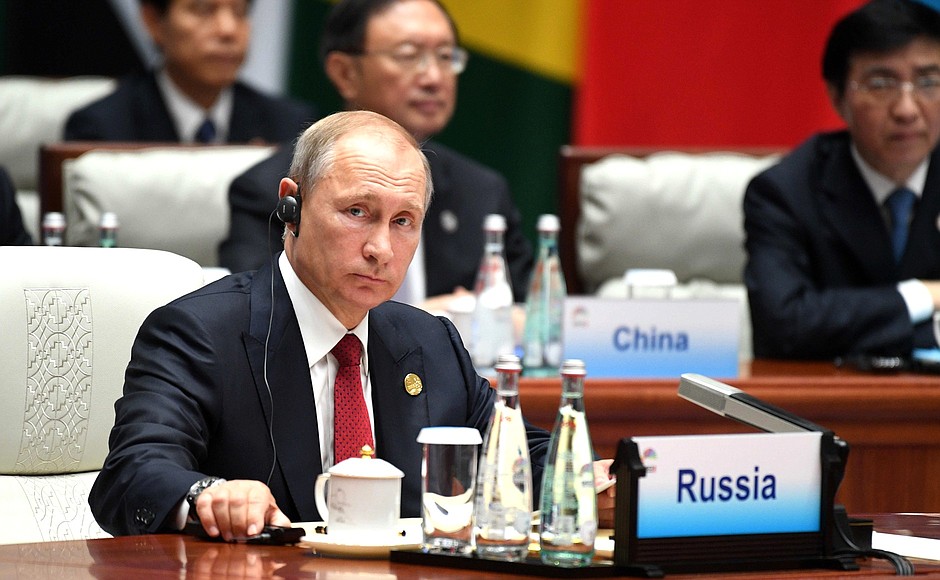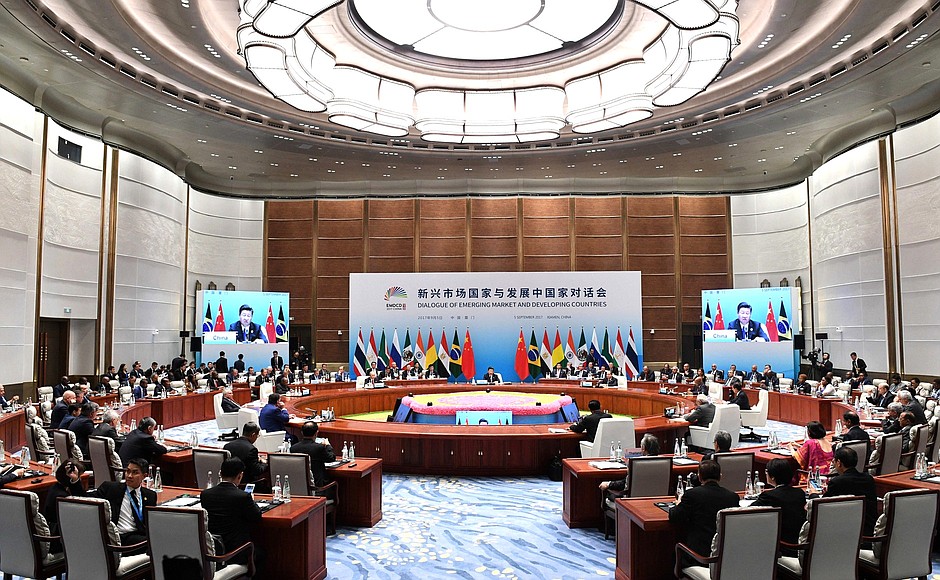The meeting participants discussed the implementation of the 2030 Agenda for Sustainable Development and prospects for further developing their partner relations.
Before the meeting, the BRICS leaders and delegation heads form invited states had a joint photo session.
The meeting concluded the official agenda of the BRICS Summit in Xiamen. The next meeting of the group’s heads of state and government will be held in South Africa in 2018.
* * *
Speech at the meeting of BRICS leaders with delegation heads from invited states
President of Russia Vladimir Putin: Mr Chairperson, colleagues,
I would like to begin, just as the other heads of BRICS states did, by greeting the heads of state and government from Egypt, Guinea, Tajikistan, Thailand and Mexico, who are attending our meeting today.
It has become a good tradition to hold outreach meetings on the sidelines of BRICS summits. They help our countries develop cooperation with various agencies and regional organisations.
During our previous summits, we had fruitful meetings with leaders from the member states of the Eurasian Economic Union, the Shanghai Cooperation Organisation, the Bay of Bengal Initiative for Multi-Sectoral Technical and Economic Cooperation, the African Union and the New Partnership for Africa’s Development.
This year we invited leaders from several emerging market countries to the Xiamen summit. These countries are our natural allies and promising business partners, therefore it is logical that BRICS is developing close socioeconomic cooperation with them and has expressed readiness to allign our positions on the international stage.
Colleagues, Russia has been working actively to implement the 2030 Agenda for Sustainable Development, as it has been said today.
We cooperate with international organisations within the UN network to jointly implement projects that are aimed, in particular, at attaining food security, modernising the industrial and transport infrastructure and resolving environmental issues.
Thus, in 2016, Russia allocated $1.16 billion towards the Sustainable Development Goals. We have written off over $20 billion of African countries’ debts through the Heavily Indebted Poor Countries Initiative.
Russia provides support to the World Food Programme and is the fifth largest contributor to the UNIDO Industrial Development Fund.
I would like to point out that Russia’s position of principle is that assistance to the implementation of Sustainable Development Goals must not be conditioned by any political requirements or terms, as this would have a negative impact on the efforts to achieve the main goals, namely eradicate poverty and serious imbalances in the development of regions and states, as well as provide debt relief to the developing countries.
Development goals are directly linked to one more serious international issue, namely, global climate change. I would like to remind you that Russia has implemented all of its obligations under the Kyoto Protocol. Between 1991 and 2012, we have not just prevented the growth of greenhouse emissions but have reduced them by 40 billion tonnes.
We have been working consistently to prepare the ratification of the Paris Agreement to combat climate change. Russia’s extensive contribution will largely compensate for the growth of emissions in other countries and regions.
I would like to add that Russia has started drafting a long-term low-emission development strategy and plan on climate change mitigation, as per the Paris Agreement.
Colleagues, in conclusion I would like to express confidence that our meeting today will promote a better understanding and respect for the interests of each other and will help boost our multifaceted cooperation and dialogue between our nations.
Thank you for your attention.
